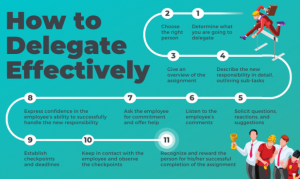In this blog, we answer the question: What is career coaching and what can you expect from a career coach. Do you feel stuck in your career? Unsure about the professional route you’ve chosen? Re-entering the workforce after an employment gap? Career coaching can make the process of clarifying and creating a change easier.
Oftentimes people are hesitant to spend money on developing their careers when in reality they probably spend more on their mobile phone bill each month. And when you think about the number of hours in your life you spend doing your job, it’s worth investing a little to make the most of those hours.
The International Coaching Federation (ICF) defines coaching as “partnering with clients in a thought-provoking and creative process that inspires them to maximize their personal and professional potential.”
Now you might be thinking “I have my friends and family for that”.
The challenge that can present itself when talking to family and friends is that they may have long-held opinions about who you are and what you can do. Their advice can work against you as their perspective is, of course, biased. Their advice may be well-meaning but it can put you off your stride before you’ve even taken the first step.
A career coach provides unbiased, objective feedback tailored to your search and career goals. A professional mentor of this type will get to know your skills and aptitude as an employee and then go from there in helping you achieve your goals.
How can a career coach help?
Career coaching can provide a fresh perspective, as well as access to various tools and techniques designed to help you take stock and achieve your goals.
A career coach is also someone to bounce new, bold ideas off of, such as that creative personal statement you’re unsure of. Hiring a career coach is the beginning of an exciting journey as experimentation will be a major part of your work together.
If you’re curious about working with an expert in the field and want to know more about what to expect, then read on.
What’s the difference between Career Coaching and Career Counselling?
People who seek career help will often see both terms used interchangeably. The reality is, career counsellors are not the same things as career coaches. While the objective of both is to assist you to determine a course for the job of your life, there are distinct differences between them. Before you decide, it’s a good idea to understand the difference between the two professions.
What is Career Counselling
Counselling is aimed at helping you think about what you want to do. They can administer personality tests (such as Myers-Briggs), interest inventories, or other evaluations. These tests are designed to assist you to identify prospective professions that may suit you well.
Career counsellors also tend to look at previous experiences of their clients. They concentrate on barriers that may cause their clients’ career difficulties or hamper their pursuit of finding a job. Usually, with a counsellor, there is a wider focus on abilities, talents, interests, or values is what you will discover. They may offer you tips or strategies for getting the job you want, but as a rule, it’s not their main objective.
What is Career Coaching
Coaching concentrates on the present circumstances of their clients to generate action plans and objectives for career progression. Instead of spending time on what doesn’t work. Coaches look at where their clients want to go and how they can assist them to get where they want to be.
They use a solution-oriented approach to assist and inform any person who needs career advice. In other words, they help people define, redefine, and achieve their professional objectives and other work-related goals.
Most commonly, they use Skype or telephone calls to interact with their clients, which enlarges the audience they can reach out to.
Career coaching will offer you the methodology and mindset you need to create intelligent professional choices and discover your sweet place – i.e. the possibilities you have, what you are great at and what you want from life.
To summarize, both counsellors and coaches can assist individuals in their careers. Whether you’re searching for more insight into what’s getting you stuck or you’re looking for an action plan to accomplish your career objectives, individuals should choose the strategy that suits their style and ideas of professional and personal growth.
When and why you need a coach
Many individuals believe that a career coach is only useful after you have applied for dozens of applications and are in desperate need of a job. While it would be a good time to find a career coach, a career coach can help with many other career crossroads.
Career coaches are widely known for helping with a job search or career transition. They are just as valuable for helping clients make the most out of their job and the opportunities at the company he or she works for.
So now that we’ve answered the question ‘what is career coaching?’ when’s the right time to get a career coach? The right time is when you’re not making the progress that you want to make towards your dream job.
Here are a few of the most common signs that you need a coach;
1. There is no sign of a promotion or advancement in your career
If you feel like your career has plateaued, it may mean you lack the necessary skills to move up in the company. A recent report shows only four in 10 millennials and three in 10 working Gen Z believe they have the skills and knowledge they’ll need to thrive. Sound familiar?
A coach can help you figure out what you can do in order to advance in your career.
2. You need someone to hold you accountable
Often, we get busy and let our deadlines slip or we lose contact with the inspiration that we had when we first set a goal. A coach will keep those objectives in mind for you and make sure you remain on track to reach them.
3. The Wheel Keeps Spinning
The wheel represents a condition where we lose the meaningful reason we’re doing something. You look online, apply for jobs, get a couple of interview callbacks, but you’re not getting the job. It might feel like you are on an ongoing cycle of applying for jobs and being rejected. You’re surprised when you do receive a rejection email.
With the help of a career coach, they enable you to avoid the endless rounds of “apply now” that so many of us endure. They help to identify what isn’t working for you and assist you to get the job you want. You achieve this through a specific set of steps tailored to you. This can be by updating your curriculum vitae, sharpening your interview abilities. Maybe you need to build up the courage to look at a whole fresh career route that may be more fulfilling.
4. You start settling for second best
The job offers don’t immediately start coming in. Gradually you start broadening the types of jobs you’re applying for. You might feel that you’re willing to take anything just to work or get out of your present unfulfilling job. When you notice this happening you need to be careful. You might end up in another unfulfilling job, and all the time spent applying and going for interviews could have been better spent preparing for your dream job. Discovering your mission cannot be done overnight. It requires time, hard work and perseverance. The issue is usually some sort of fear that stops you from doing what it takes to go after what you want.
5. You need advice from a neutral third-party
I’m sure friends and family are great at offering advice. However, sometimes they give you the advice they would take, what’s best for them versus what’s best for you. If you ask friends and family, remember as well that they have their impression of you. Is that the full story? Do they know your secret dreams and ambitions? When you ask them for advice they will consider that in light of their own experiences, and how they know you. If they had a dream of starting their own business that they never dared fulfil, they might tell you to do that. But that might not be the right thing for you. If they want you living nearby, they might not want you to take a job that’s far away. These things will influence their advice to you, even if they have the best intentions. A career coach gets to know you through personality tests and in-depth conversations. They will get to know your secret dream of becoming a CEO or to move to France. They will help you find your dream career based on that information, without any preconceived ideas about who you are or what is good for you.
6. You are anxious about the future
You may experience anxiety or nervousness whenever you are uncertain about something. This may be linked to your profession. So, it may be time for a professional to step in and assist you. Coaching enables you to be introspective and understand yourself better. With professional guidance, your objectives and actions will align more with who you are and what you need to be in order to be happy. While career coaching may focus on career advancement or the development of certain abilities, you will also find ways to do more work you that you benefit from and eliminate the habits that make you unhappy at a job.
7. You don’t know what to do next
You might have an idea that you don’t like where you are, but you have no idea of what do to next. This can happen for a number of reasons. For example, if your current job is very unfulfilling that can lead to reduced self-esteem. You lose faith that you’re able to manage a more demanding job. If your current job is not aligned with your personal goals you may find that it’s hard to get motivated. You might mistakenly believe that this comes from a general lack of motivation for work. You might just be in the wrong job. A career coach will help you identify why you’re not happy with your job, and find opportunities that suit your ambitions, goals and values.
Changing careers is a big step. A coach can give you the support you need to make the change easier because you’re confident it’s the right change.
As you can see, there are many indications that someone may need a career coach. These are just a few examples. The problems you’re facing may be completely different. But the benefit of having a coach is that they prioritise your current situation and needs.
How does career coaching work?
So what is career coaching? Career coaching typically consists of one – on – one meeting between you and your coach. A session usually lasts 45 to 60 minutes each. Most clients meet their professional coach once a week, although some clients meet every two weeks or even once a month.
Your career coach will generally gain information about your career objectives and life aspirations in the first one or two meetings. any coaches will also give you several assessments to help you identify your strengths, values, and the things that give you meaning and purpose. The main objective of these initial sessions is to provide you, the client, with complete clarity about what you want to accomplish and then assist you to create a personalized career plan.
At the end of each session, your coach will ask you to commit to taking action before the next session. Generally speaking, these will consist of particular activities that you and your coach have recognized as the most significant things you can do to get closer to meeting your career goals. Your coach may even challenge you to take action that moves you outside of your comfort zone.
Accountability
Your coach will hold you responsible from week to week to ensure that you constantly take action. Commitment, accountability, and follow-through are some of the coaching process’s most precious elements. They are a major reason why people who work with a career coach experience advancement and career development.
While a career coach can and will provide you with the tools and resources necessary to make you and your job search successful, they’re not there to do the work for you. Taking what you learn in a session and what you do with it is entirely up to you. For instance, being prepared to set aside devoted time to practice interviewing techniques or crafting an excellent cover letter. As with most things, you’ll get out what you put into the relationship.
Is career coaching worth the cost?
In short, yes. It can offer immense clarity, completely revamp your career, or offer support during a difficult period in your career. There are variations in how much a career coach costs. And when you find the right coach, the long-term advantages it can reap will make you happy you have invested. After all, we’re talking about your profession. The activity that takes up at least 40 hours of your week.
The benefits of professional career coaching are innumerable. Professional career coaching can help you to find a new job, improve leadership skills and create a healthier work-life balance.
Your coach will be there to monitor your progress, motivate you, and check in to make sure you meet your career objectives. You are less likely to stray from your objectives and intentions by having accountability. With that support, you will be more likely to remain on your planned career path. You will most probably meet at least one sink-or-swim scenario in your life at one stage in time. You will want someone trustworthy and knowledgeable to assist you to navigate the decision-making process.
Some of the most successful people on the planet have used coaches such as Steve Jobs, Oprah, and Serena Williams. The software magnate Bill Gates put it best when he said: “Everyone needs a coach. We all need people to give us feedback. That’s how we improve.”
By working with a coach you’ll get crystal clear on your values and your priorities at work. Together you’ll set goals in each area of your life and map out ways of achieving these. A coach will help you overcome obstacles you may face on your journey. Sign up to a free discovery call and talk to one of our coaches today and start shaping your future.
Want to know more?
If you have more questions about career coaching take a look at our blog about how you get the most from career coaching.







